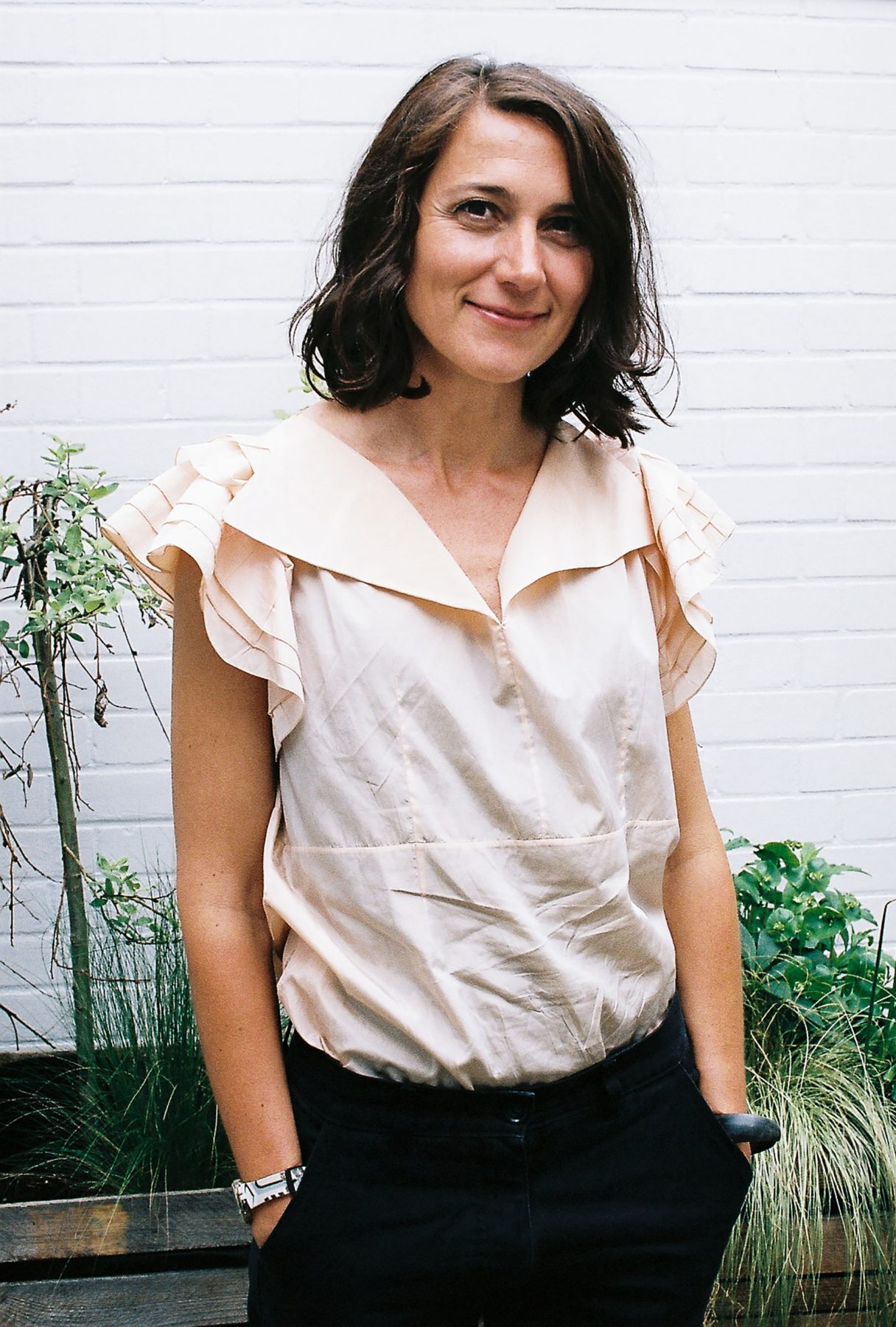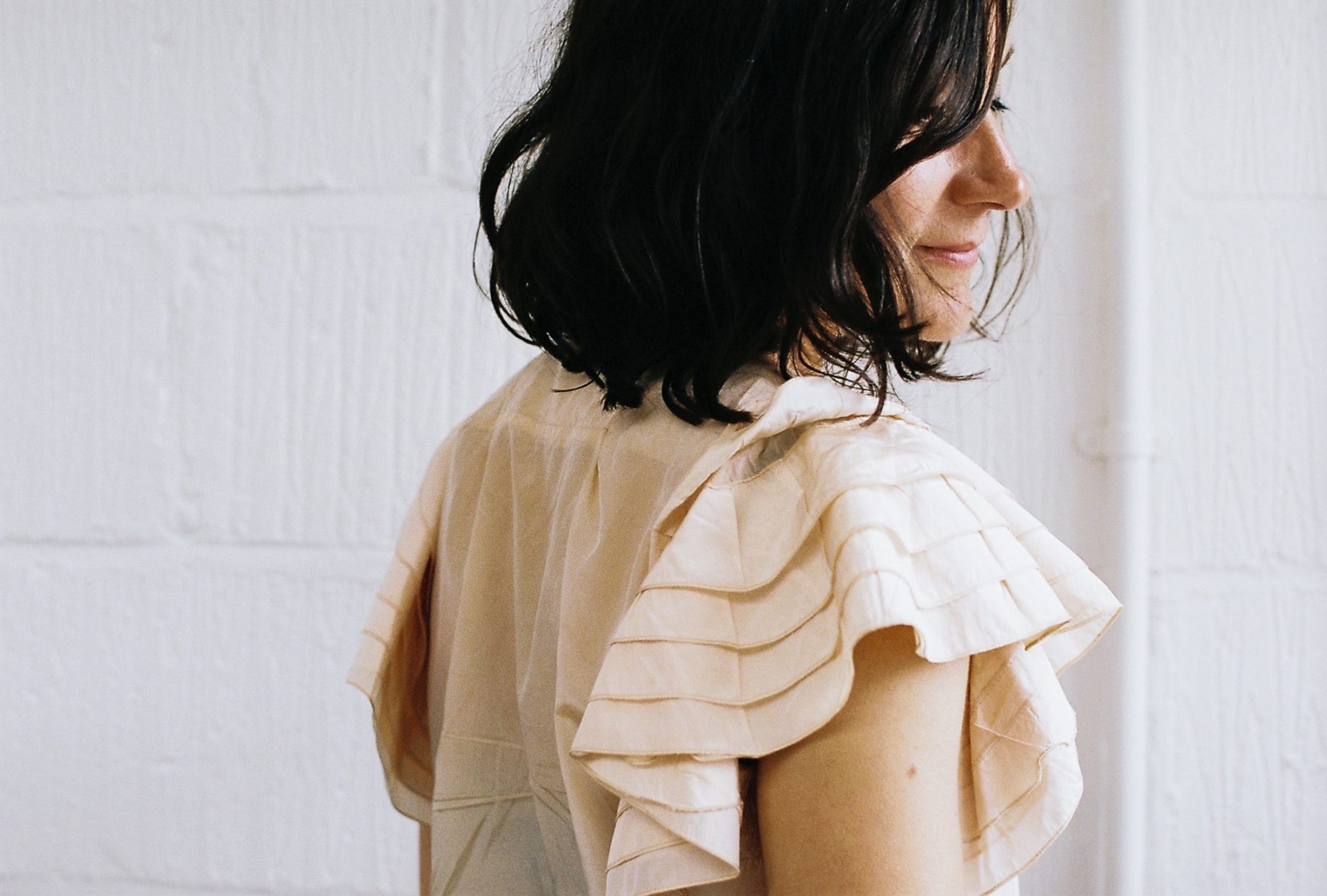
Profile
Kate Fletcher
Kate is the Professor of Sustainability, Design, Fashion at the Centre for Sustainable Fashion at University of the Arts London. She is also a renowned author and the Founder of design consultancy, Slow Fashion.
How would you describe your relationship with clothing; has it evolved over the years?
My relationship with clothing is friendly, warm and, from time to time, a little dependent. I appreciate the garments I have—when they’re on my body while I’m doing the things I do, in the places I do them, they work. I’ll also say ‘they are warm’ because it is bloomin’ cold where I live, and the practice of dressing for a warm body and spirit is an art—which for me takes the form of layer upon layer of wool.
My relationship with clothing is a little dependent because I am who I am in negotiation with others. My sense of self is wired into human culture—fashion culture—and as such I am rallied, extended and also made restless by this.
Would you say you that have a personal uniform?
I wear wool. Partly to save from catching my death, and also because I like it very much. I like that when I talk to the public about how they use their clothes (as I did for the Local Wisdom project, which is now a book called The Craft of Use), often the first garments people think of are pieces made from wool. There is something about it as a fibre that suggests we wear it and tend it and live with it over time. I share this feeling.
I also don’t wear new pieces without pairing them with old. It is certainly partly an aesthetic decision, but perhaps I also seek out balance. Change and stability. New friends and old. I also struggle when I have things I don’t wear. I’d rather have very little and wear it constantly than have more and for it to be rarely worn. This sounds rather Calvinistic when written down, or as if I’m a war baby who grew up under rationing! I think in fact it is more a matter of wanting to honour and notice each piece. And to know a garment first you have to wear it. Too many, and they will languish.
How have your personal values shaped your work?
They are my work. And my work is them.
Kate Fletcher
“I don’t wear new pieces without pairing them with old. It is certainly partly an aesthetic decision, but perhaps I also seek out balance. Change and stability. New friends and old.”

This is a question Intent poses to all of its subjects, but it is particularly relevant given that you coined the term.. What does the ‘Slow Fashion’ movement mean to you?
It means a radical change in the economic logic and business models of the fashion status quo. ‘Slow’ is an invitation to think about a range of speeds, consumption practices, people, and garments. It is a shift from a monological view of fashion tied up closely with consumerism to a pluralistic, pixelated view of fashion activity and the fashion economy.
What led you to start exploring the fashion system, and what has changed since you first began this journey?
I think the impetus to start exploring the fashion system was kindled in my youth. Only recently did I realise that I have Liverpool—the city of my birth, a bleak place in the 1980s with few jobs and little hope—to thank for an enduring understanding of what both community and solidarity mean. Both are central to my view of a different fashion system.
No one had very much; everyone lived cheek by jowl. But we organised street parties, passed a just-read newspaper next door, made hand-me-down bikes new again with stickers. We lived well together. I remember once that our part of the city declared itself an independent state for the day. There was a lot of laughter. Could it have been then that I realised change is possible? And that I channelled this realisation into my other passion: making clothes?
The business model is such an important key to driving long term change in companies and the way that they operate. Through your work as a consultant, have you seen clients adopt any particularly exciting business models or ways of approaching sustainability?
Yes and no. Some clients have taken wonderful, bold decisions that have really paid off. These businesses have transformed themselves around sustainability ideas, created totally different products, and are agents of change for sustainability in the world. And then there are many others who are trapped by a twentieth century view of what business is and should be. This shackles many projects, and reduces appetites for other visions to the norm.
Has there been any progress over the past few years (throughout the fashion industry or society as a whole) that has been heartening to you on both a business and personal level?
Yes! The entire nation of Portugal was powered by renewables for four continuous days for the first time recently. Globally, more journeys are made by bicycle than by car. The conversation about sustainability and fashion is in a qualitatively different (better) place compared to two decades ago. There are many wonderful people doing good things, some of whom I can count among my friends. The others, I am grateful to.
Kate Fletcher
"I am daunted, even terrified, by the prospect that change won’t come. Or worse still, that the sort of change that arrives will be superficial, instrumental, symptom-focused—change that creates the illusion of transformation without really shifting anything. This illusion stops people from doing anything more."
The Centre for Sustainable Fashion works with governments, businesses, NGOs, educational institutes, and broader industry and stakeholders—what do you hope to achieve through this collaboration?
To bring many different groups and individuals on an experimental, or exploratory, journey with sustainability futures.
What have been the greatest lessons you have learned during your time working in this space?
I try to look at the relationships between things—to be, in Kathleen Dean Moore’s terms, a professor that studies connection. Sometimes that ties in with the business agenda, often it doesn’t. The vast majority of businesses and designers are focused on making their product or service new and different, and this trumps the drive to find that connecting thread. But perhaps all it takes is for some of us (will you join me?) to look for and love the connections.
When looking to the future of the fashion industry, what excites and/or daunts you most?
I’m excited by projects and ideas and actions that try to uncover the truth. I am daunted, even terrified, by the prospect that change won’t come. Or worse still, that the sort of change that arrives will be superficial, instrumental, symptom-focused—change that creates the illusion of transformation without really shifting anything. This illusion stops people from doing anything more.
Photography Claire Summers
Production Sigrid McCarthy
Learn more about Kate Fletcher
Follow Kate on Twitter @katefletcher

